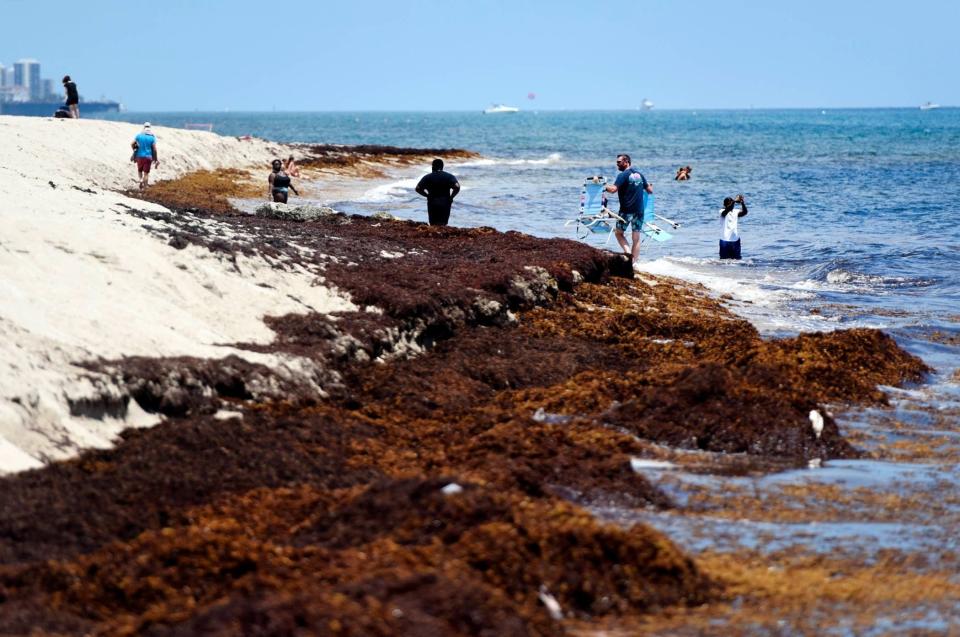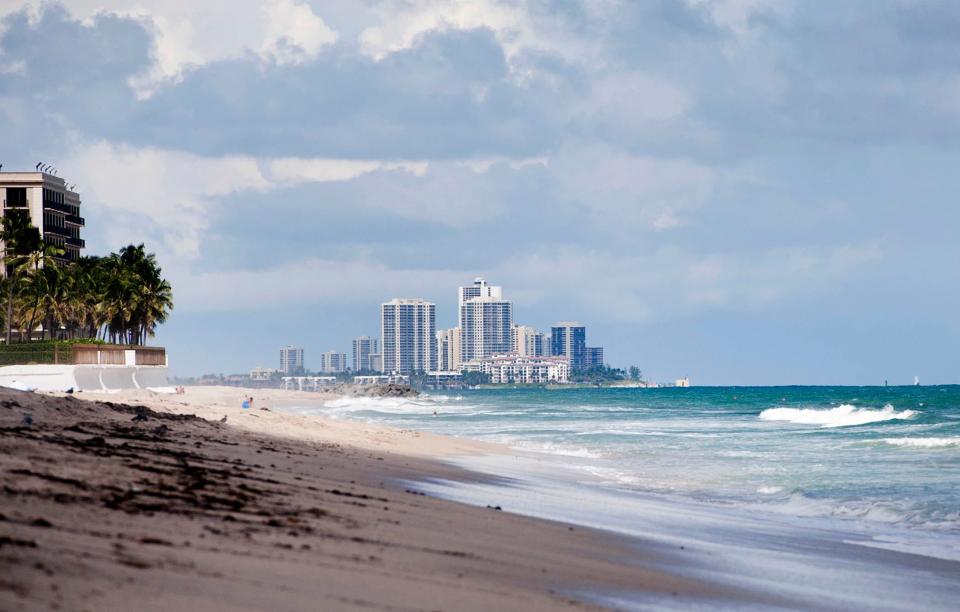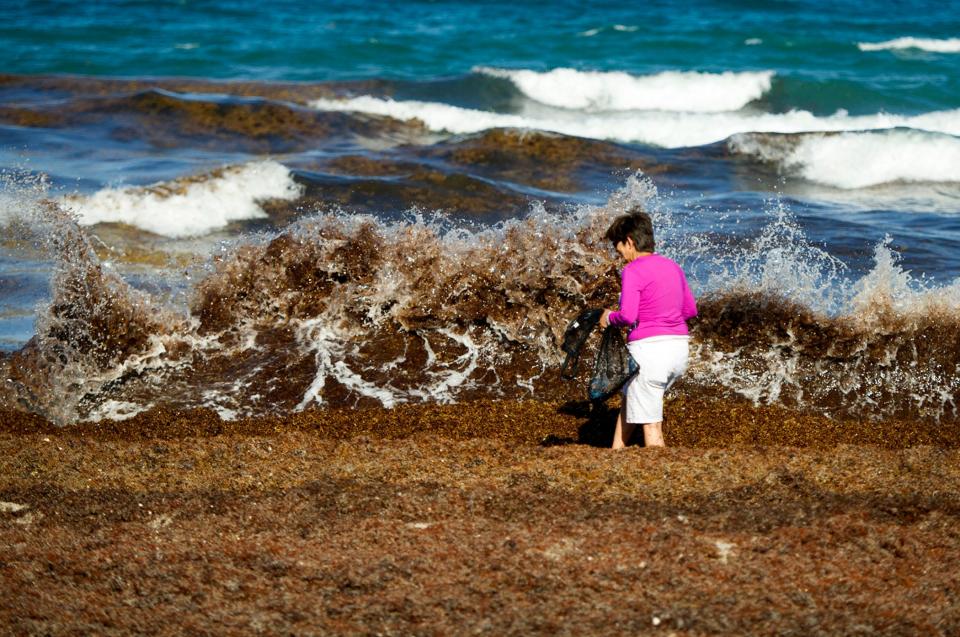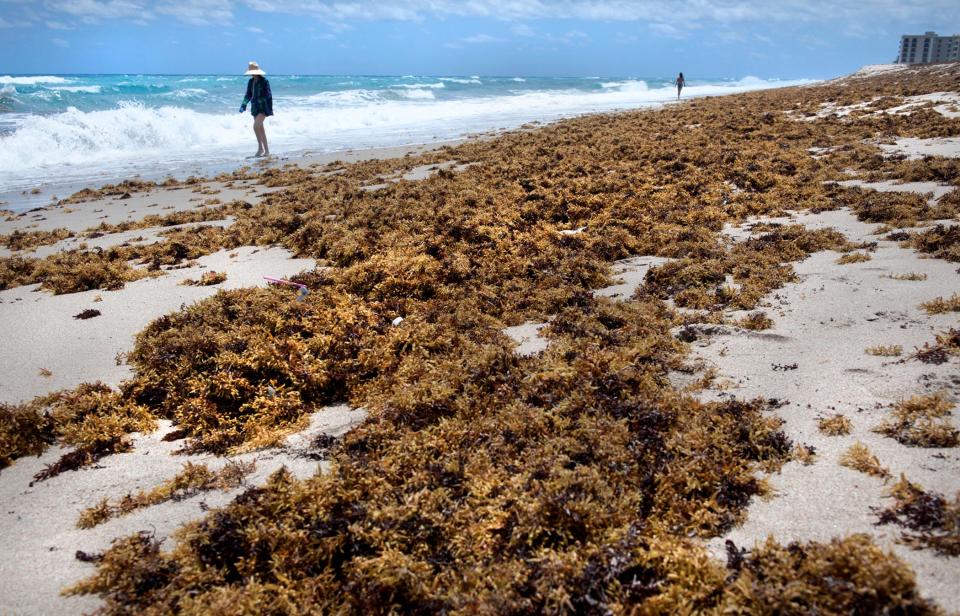'A new normal': Palm Beach looks to manage rising sargassum levels
The town of Palm Beach has signaled that going forward it will immediately tackle any large deposit of seaweed on its beaches.
During its last meeting, the Town Council directed staff to obtain an hourly rate contract for special projects and beach cleanups and agreed to consider additional raking services for beach areas from Angler Avenue north.
Beach cleanups would include the removal of sargassum, a type of seaweed that floats in large masses on the surface of the ocean. It can be harmful to nesting sea turtles, eggs and hatchlings, town officials said.
Sargassum has been washing up on the town's beaches with more frequency and in higher volumes for several years, prompting discussions among council members and town staff about short-term and continuing solutions for removing it.

Season begins: Lights out for sea turtle nesting season runs Tuesday to Oct. 31
Seaweek removal options examined: Palm Beach will consider solutions for removing sargassum from its beaches
Sargassum removal deemed a priority: Palm Beach OKs new protections for sea turtle nests; mechanical beach cleaning to continue
"This may be a new normal," council member Bobbie Lindsay said at the Sept. 13 meeting. "I have not seen this much sargassum in the 20-plus years I've lived up here. I can tell you that I've never seen it like I saw it this year."

The beaches were clogged with sargassum last month, and while it has begun receding, particularly at beaches in the North End from Angler Avenue to the inlet jetty, the town expects it to return in large quantities next spring, which coincides with the start of sea turtle nesting season.
Having a contract in place for special projects and beach cleanups would be a proactive step, Council President Maggie Zeidman said, as it would allow the town to remove sargassum when conditions warrant it.
"This has been going on since 2011 or so," she said. "More and more sargassum is coming in and building up. I'm in favor of taking a look at doing something that removes it on a proactive basis, a routine basis. We have to monitor it, because we may not need it all of the time."
If needed next year, seaweed removal would occur as part of a pilot program conducted with the Florida Department of Environmental Protection and the Florida Fish and Wildlife Conservation Commission.
Through the program, some of the seaweed would be placed adjacent to the jetty and covered with a thin layer of sand.

This would deter sea turtle hatchlings from heading toward the inlet and redirect them toward the ocean, Public Works Director Paul Brazil told the council.
The remainder of the seaweed would be buried on the beach and covered with about two feet of sand. That amount is what sea turtles need to build a nest for their hatchlings, Brazil added.
Both actions would be performed and monitored during the subsequent nesting season to determine if nesting is impacted.
"If there was not a negative impact to sea turtle nesting the following year, it may become a viable alternative where we end up with vast amounts of seaweed and not hauling it off," Brazil said.
Brazil said the town should receive bids on a new contract for special projects and beach cleaning in about 30 days.
The contract will have no initial value, as town staff will rank the contractors and then ask the council to ratify the selection.
If there is an event that requires beach cleaning, then the town will have a mechanism in place to hire the top-ranked firm, Brazil said. The town will get a project-specific price based on the unit rates submitted.
In addition to special projects and beach cleaning, the town also plans to seek a new contract for raking that would include beach areas from Angler Avenue north.

The town already rakes Midtown Beach and Phipps Ocean Park as part of a $50,000 contract that is set to expire, Brazil said.
Since the worst of the seaweed problem occurs from Angler Avenue north — an area that sits in the shadow of the jetty — Brazil said it would make sense for the town to include that area in a new beach raking contract.
"The seaweed there is more prevalent," Brazil said.
A contract including Angler Avenue north — about three-quarters of a mile — would probably be worth about $100,000, Brazil said.
The contract would not include beach raking in the town's South End, Brazil said, because from Sloan's Curve south, the Citizens' Association of Palm Beach pays to clean the vast majority of beaches.
Jodie Wagner is a journalist at the Palm Beach Daily News, part of the USA TODAY Florida Network. You can reach her at jwagner@pbdailynews.com. Help support our journalism. Subscribe today.
This article originally appeared on Palm Beach Daily News: Palm Beach seeking contracts for seaweed removal and beach raking

